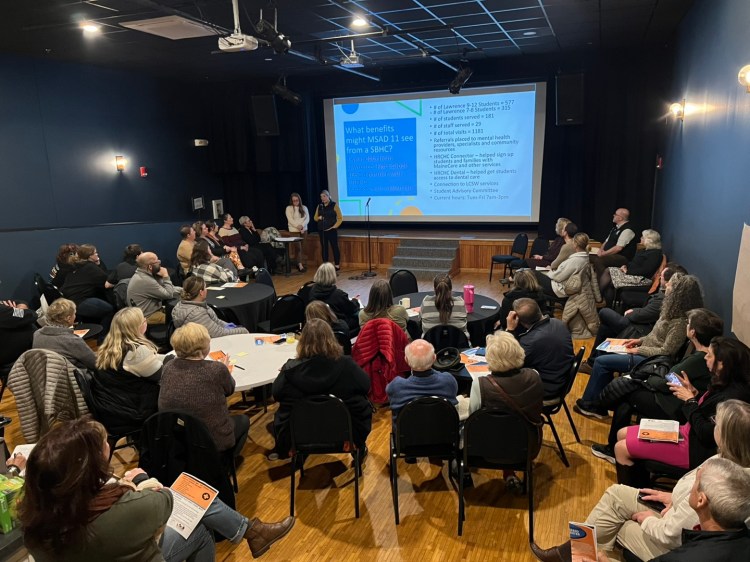Gardiner Health Center Addresses Parental Concerns on Gender Care
Gardiner Health Center Addresses Parental Concerns on Gender Care
In the ever-evolving landscape of healthcare, especially when it comes to gender-affirming care for youth, it’s crucial to have open lines of communication. The Gardiner Health Center has taken a proactive approach in addressing parental concerns surrounding this important and sensitive topic. Understanding gender identity and providing appropriate support has become an essential discussion point for families, healthcare professionals, and community members alike. Let’s unpack what Gardiner Health Center is doing to ease parental fears and ensure the well-being of their patients.
Understanding Gender-Affirming Care
Before diving into the heart of Gardiner’s initiatives, let’s clarify what gender-affirming care really means. In simple terms, it helps individuals express and live in a way that aligns with their gender identity. This type of care doesn’t just involve medical interventions; it also embraces psychological support, counseling, and educational resources.
Imagine for a moment you’re navigating a maze. Each turn represents a decision you make regarding your health and identity. Gender-affirming care is like a trusted guide in that maze, helping you find the best path that feels right for you. How comforting is that?
What Does Gender-Affirming Care Include?
At its core, gender-affirming care can encompass a range of services, including:
- Counseling: Providing emotional and mental support during what can be a tumultuous time.
- Puberty Blockers: Medications that help delay physical puberty changes.
- Hormone Therapy: For those looking to initiate physical changes aligning with their gender identity.
- Support Groups: Connecting individuals with similar experiences can help mitigate feelings of isolation.
By understanding the various facets of gender-affirming care, we can appreciate its importance for teenagers and their families.
The Gardiner Health Center Commitment
Creating a Safe Space
When parents hear about gender-affirming care, it’s only natural for them to experience concern. They worry about their child’s well-being, potential side effects, and societal implications. Gardiner Health Center acknowledges this and aims to create a safe and supportive environment for both patients and their families.
Imagine walking into a place that feels like a warm embrace rather than a clinical setting. That’s the kind of atmosphere Gardiner is working to cultivate.
Open Forums for Discussion
One of the most effective strategies Gardiner has employed is hosting open forums. These gatherings allow parents to voice their concerns, ask questions, and engage in meaningful discussions.
- Transparency: These forums encourage transparency, ensuring parents understand what gender-affirming care entails and how it may benefit their child.
- Expert Insights: Healthcare professionals are on hand to provide expert opinions and evidence-based information.
In these discussions, parents often realize they aren’t alone in their worries. They find common ground, sharing stories and insights with others who have walked similar paths.
Addressing Misinformation
One of the hurdles surrounding gender-affirming care is the sheer volume of misinformation available online. Misinformation can spread like wildfire, leaving many people confused or misled. Gardiner Health Center recognizes the need for accurate information.
Educational Workshops
To combat misinformation, Gardiner offers educational workshops focused on:
- Medical Guidelines: Discussions around current standards and practices in gender-affirming care.
- Legal Aspects: Understanding rights when it comes to healthcare for transgender and non-binary youth.
These workshops not only educate but also empower parents, helping them feel more equipped to support their children.
Community Support and Collaboration
Gardiner Health Center understands that healthcare extends beyond its walls. To fully support patients, they actively collaborate with community organizations and local schools. This collaboration helps foster an environment that embraces diversity.
Building Partnerships
By forming partnerships, Gardiner is able to:
- Amplify Voices: Work with local LGBTQ+ organizations to amplify the voices and needs of transgender youth.
- Seek Feedback: Continuously gather feedback from the community to adapt and improve care.
Creating a robust network of support means that patients know there are advocates out there looking out for them—how reassuring is that for both kids and parents?
Parent Testimonials: Real Voices, Real Experiences
Sometimes, the best way to alleviate concern is through shared experience. Gardiner Health Center has made it a point to foster a community where parents can share their stories.
Hearing from Others
Many parents who have gone through the gender-affirming process with their children find comfort in discussing their experiences:
- Success Stories: Parents narrate how their children have blossomed with the right care, finding their voice and identity.
- Validation: Listening to others often validates parental concerns, showing them they’re not alone.
These testimonials can reveal the profound change gender-affirming care has on families, creating a sense of hope for those still navigating uncertainty.
Navigating the Emotional Terrain
The journey of understanding and supporting a child’s gender identity is often accompanied by a range of emotions. Gardiner recognizes this complexity and focuses on the emotional well-being of both the child and the parents.
Providing Resources
- Counseling Services: Offering sessions for both the child and their parents helps address emotional pitfalls.
- Family Support Groups: Connecting families lets them share challenges, triumphs, and strategies for coping.
Providing resources not only bolsters emotional support but also builds stronger family bonds as everyone navigates this journey together.
The Importance of Continuous Dialogue
As the landscape of gender identity and healthcare evolves, so too must the dialogue. Gardiner Health Center promotes ongoing conversations, understanding that it’s not a one-time discussion but an ongoing journey.
Regular Check-ins
Encouraging regular check-ins between health professionals and families allows for:
- Adjustments in Care: Continuous monitoring enables adjustments in care as needed.
- Fine-Tuning Support: Families can express new concerns as they develop, ensuring that care is always relevant and responsive.
In this way, Gardiner is fostering a relationship of trust and collaboration—because addressing gender care is not just about the individual but about families as a whole.
Conclusion
As the dialogue surrounding gender-affirming care continues to unfold, the Gardiner Health Center stands at the forefront, striving to provide a supportive, informed, and community-centric approach to care. For parents grappling with concerns regarding their child’s gender identity and the related medical care, Gardiner emphasizes the importance of open communication, education, and shared experiences. Their commitment to creating a safe space fosters trust and understanding, ensuring both parents and children can navigate this complex landscape with confidence.
As we embrace the conversation around gender-affirming care, let’s recognize that every step we take towards understanding enriches the lives of those we love. Remember, it’s all about support, awareness, and love—and that’s a journey best taken together.
FAQs
1. What is gender-affirming care?
Gender-affirming care is a holistic approach that supports individuals in living in alignment with their gender identity, including medical, psychological, and educational services.
2. How does Gardiner Health Center support parents?
Gardiner Health Center provides resources, holds open forums, and encourages family support groups to ensure that parents’ concerns are addressed and validated.
3. What types of services are included in gender-affirming care?
Services can include counseling, puberty blockers, hormone therapy, and support groups among other personalized care options.
4. How can misinformation about gender-affirming care be addressed?
Misinformation can be tackled through educational workshops, open discussions, and sharing expert insights to better inform families.
5. Why is family involvement important in gender-affirming care?
Family involvement is crucial for emotional support, understanding, and fostering a sense of trust, which helps both the child and the family navigate the complexities better together.







